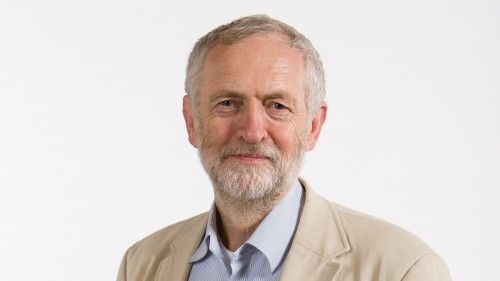
Labour leadership candidate Jeremy Corbyn has set out his plans for UK housing policy, which includes incentives for local authorities to build, tackling ‘landbanking’ and boosting the construction of affordable homes.
As outlined in his Housing Policy document published on August 5, Mr. Corbyn is calling for the adoption of a wide-range of new policies designed to increase the number of homes being built. Among them is the introduction of a National Investment Bank to support new build housing projects with low interest rates, for both councils and developers, as long as a certain proportion of genuinely affordable housing was built.
Mr. Corbyn also suggests lifting the borrowing cap in the Housing Revenue Account to allow local authorities to borrow more to fund greater levels of house-building. He would also introduce regional targets to ensure council homes were built in all regions of the country.
A Labour Party led by Jeremy Corbyn would also aim to reduce the Right to Buy scheme instead of the Conservative Party’s extension to housing association tenants. Local authorities in areas of high housing stress would be given the power to suspend Right to Buy in order to protect depleting social housing assets, while sale receipts would remain in the local area and be used for genuine replacement properties.
In a policy echoing Ed Miliband’s plans for the housing market, a Land Value Tax would be introduced under Jeremy Corbyn to ensure undeveloped land with planning permission is used, with ‘use it or lose it’ measures for brownfield sites to act as a disincentive to landbanking and to raise public funds for house-building.
It has also been suggested that public land should be used for development by councils to meet local needs.
In a statement released with his Housing Policy document, Jeremy Corbyn said: “It is the responsibility of Government to ensure that we are building sufficient housing to meet everyone’s needs. This responsibility is not currently being met. Through their repeated failure to invest in housing the Conservatives and the previous Coalition Government have exacerbated the housing crisis.
“We as a Labour party must be bold in our vision to meaningfully address the housing crisis in Britain today.”
The new policy release also included plans for UK energy efficiency policy, which would make zero carbon homes “the norm”, with local authorities given greater freedoms to drive this change. ‘Allowances in favour of energy efficient homes’ would also be introduced rather than subsidies to poor and unoccupied properties. Mr. Corbyn would also introduce higher energy efficiency standards on all new builds, while maintaining planning regulations protecting the greenbelt, as well as a national home insulation programme intended to save the average household £250 on their energy bill, and cut carbon emissions.
Meanwhile, fellow Labour contender Andy Burham has also recently released a manifesto for his bid to become opposition leader. In it he calls for “the most ambitious housing policy since the post-war period” by freeing up restrictions on councils to build new homes. This includes lifting central government borrowing caps that prevent local authorities from building more social housing.
Mr. Burnham would also create a National Housing Commission to drive progress in every area of the UK and ensure new homes are built with affordable rents. A ‘Rent to Own’ scheme would also provide mortgages that require no deposit to increase the level of first-time buyers.
According to the party’s latest nomination figures published at the beginning of August, Mr Corbyn was ahead in the leadership race, with Yvette Cooper achieving second place, Andy Burnham in third, and Liz Kendall in last position.
Neither Yvette Cooper or Liz Kendall have released detailed plans of their policies.



